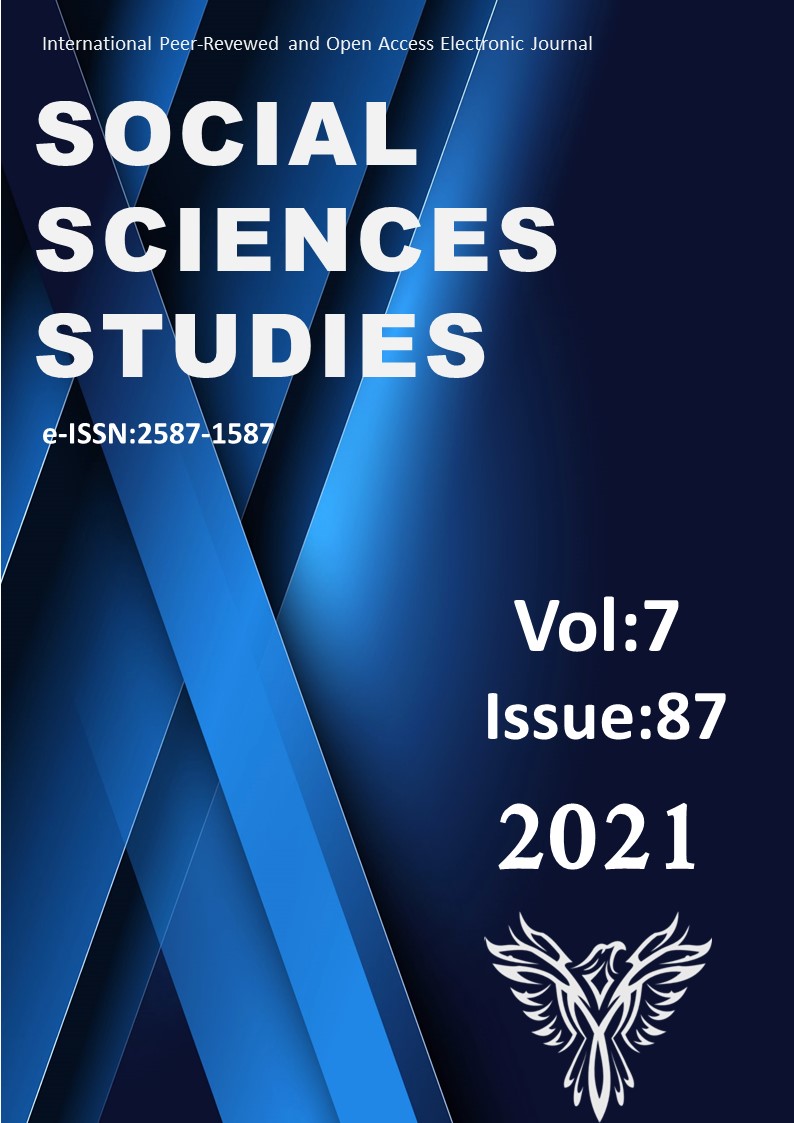Author :
Abstract
Yaşar Kemal'in destansı bir öykü olarak kabul edilen İnce Memed'i, Doğaya karşı Kültürün varoluşsal tasviri içinde istisnai bir destansı değere değinir. İnce Memed'in önsözünde Kemal, Memed'in öyküsünü destansı bir öykü olarak sunar ancak, karakterin bireysel gelişiminin “göklere çıkartılmaması” gerektiğine dikkat çeker. Diğer bir deyişle, bir bireyi yaratan şeyin kendi hayatındaki kendine özgü koşulların olduğunu iddia eder. Homeros ve Vergilius'inkilere benzer klasik destanların aksine Kemal, böyle bir bakış açısıyla farklı bir inanç ortamında 'isyan ve bağlılık' temasını tasvir eder. Aslında 'Doğaya karşı Kültür' kavramının epik türde aşikâr göründüğü iddia edilebilir, çünkü geleneksel olarak kahraman bireyin içinde yaşadığı ya da saldırabileceği toplumla yüzleşmesini veya o topluma olan karşıtlığını anlatır. Bu tasvir, İnce Memed'de de belirgindir ancak sunulan değer sistemi aracılığıyla klasik modellerden farklı görünmektedir. Klasik modellerdeki kahramanlar Homeros'un 'halkın çobanları' olarak ifade ettiği asil ailelerden gelmelidir, Kemal'in kahramanının ailesi ise sıradan insanlardır. Daha iyi anlatmak gerekirse, Kemal'in kahramanı içindeki destansı gücün, genç bir asiden elit tabakaya meydan okuyan bir kahramana efsanevi dönüşümüyle şekillenen yetim, genç bir köylüdür. Aslında, savaşta gösterdiği cesaret değil, toplumsal sınıfına bağlılık duygusu ona zaferi getirmiştir.
Keywords
Abstract
Yashar Kemal’s Memed My Hawk, considered an epic narrative, refers to an exceptional epic value within its existential depiction of Nature versus Culture. In the prologue of Memed My Hawk, Kemal presents the narrative of Memed as an epic; however, he points out that the character’s individual developments must not get “elevated to the skies”. That is to say, he asserts that an individual is a creation of the peculiar circumstances in his or her life. Through employing such a view, Kemal depicts a theme of ‘revolt and commitment’ in his epic within a divergent ethos, in contrast to the classic epics similar to those of Homer and Virgil. Indeed, it can be claimed that the concept of ‘Nature versus Culture’ seems to be palpable in the epic genre as it conventionally depicts confrontation or contrast of an individual hero with the society in which he lives or to which he may strike. This portraiture is evident in Memed My Hawk as well, yet the portrayal seems to be disparate from the classic models through the value system presented. The heroes in the classic models need to be from such an elite root that Homer calls them ‘shepherd(s) of people’, while Kemal’s hero is from among the common people. More precisely, Kemal’s hero is a young orphan peasant whose epic essence is shaped through a legendary transformation from a young rebel into a heroic character who challenges the elite echelons. Indeed, what gives him glory is not the bravery with which he fights in war, but rather his sense of commitment to his social class.





